During the fiery days of 1973, Bach Mai airport echoed with the roaring sound of engines preparing for the parade, but in the heart of young soldier Tran Cong Thang (born 1946, Hanoi), there was only one sound - his heart pounding because he was about to meet the girl he loved again.
Riding his old bike in the harsh sunlight, he was filled with excitement when, after 6 years of war and bombs separating them, he met his lover again - Ms. Nguyen Thi Nguyet Anh (born 1948, Hung Yen) - a female driver of Truong Son.
Stopping in front of the barracks gate, Mr. Thang asked the guard to help him tell Ms. Anh - the Truong Son driver. Inside, as soon as she heard that someone was looking for her, Ms. Anh rushed out, breathing heavily, her hands clutching the hem of her shirt.
On the large training ground, the familiar figure from years ago stood with his back turned. "Mr. Thang!", Mrs. Anh's voice rang out. Mr. Thang's shoulders shook as he turned around.
"At that time my whole body was shaking. For 6 years, I thought many times about the moment we met again and would give her a kiss, but when we actually stood in front of each other, except for my heart beating fast, my hands and feet were clumsy and I didn't know what to do," Mr. Thang said with a laugh.
The engineer looked deep into his lover's tearful eyes, his eyes stinging. Six years of waiting, unanswered letters, and the near-death experiences on the battlefield - everything exploded in that moment.
He gently asked, "Do you still love me?", Mrs. Anh choked, holding the man's hand tightly.
The cheers of her comrades surrounded her, but in that moment, only the two of them could hear each other's heartbeats. She nodded shyly, letting herself be pulled into a strong embrace. They had been through many years of hardship, but their love had never faded.
Half a century has passed, Mr. Thang gently squeezed his wife's hand, his old eyes still shining with love as ever.
"That day I was not sure if she was still waiting for me, because a girl's youth is short, and I did not know if I was alive or dead," Mr. Thang said.
Mr. Thang and Mrs. Anh have been married for 51 years (Photo: Nguyen Ngoan).
Love blossomed from the night of entertainment
Ms. Anh is the second daughter in a large family of teachers in Hung Yen. Since childhood, she has been used to seeing her father and older sister teaching far away, helping her mother with the fields and taking care of her younger siblings.
In 1965, when the American invaders escalated their bombardment of the North, patriotism and hatred for the enemy burned within the young girl. Ms. Anh was determined to join the youth volunteer force, hoping to contribute to protecting the Fatherland.
In September 1965, carrying the notebook her father gave her, she joined Company 9, Group 59, stationed at Construction Site 130 Yen Bai. At the age of 17, she was assigned to build houses for Chinese experts who helped Vietnam build a makeshift airport.
In the midst of the war, during the days when bombs were raining down to destroy the airport, Ms. Anh met engineer Tran Cong Thang at a cultural night, and they became lovers.
Mr. Thang and Ms. Anh fell in love at a music night (Photo: Nguyen Ngoan).
Mr. Thang was a worker at a medical equipment factory in Hanoi. In 1965, when the factory selected 10 workers to go to the battlefield, he volunteered to go. In early 1966, after 3 months of training, he joined the 251st Engineer Regiment, working with other forces to build a makeshift airport in Yen Bai.
"My barracks and my wife's were only a few hundred meters apart," Mr. Thang recalled.
The first time he met Mrs. Anh was at the end of 1966, he was waiting for his turn to perform in the regiment's art performance when he went to the barracks gate. Seeing Mrs. Anh and two other girls lurking outside, he went to ask them and learned that they wanted to go in to watch but were stopped by the guards. The engineer helped bring the three girls inside. After the performance, he went to talk to her and was attracted to Mrs. Anh.
"She was tall, with sparkling eyes. At that time, there weren't many girls that tall," Mr. Thang said.
During the two years of stationing to build Yen Bai airport, every weekend night, Mr. Thang walked to Ms. Anh's unit to meet her. The first time he fell in love, the Hanoi boy did not know how to say romantic words, their conversation only revolved around family and asking about her health. When he was busy and could not meet his girlfriend, Mr. Thang took poluya paper (moisture-proof paper) from Hanoi to write a letter, asking his comrades to bring it over.
"I sent her 40 love letters," Mr. Thang shared.
However, he was rejected several times when he confessed his love, because at that time, Mrs. Anh only wanted to finish her mission and return to her hometown to marry someone closer to home.
Undaunted, Mr. Thang persisted in writing letters and tried every way to show his concern. After more than a year, his sincere feelings moved her.
A love letter Mr. Thang wrote to Ms. Anh in 1968 (Photo: Character provided)
"Once I didn't write a letter for a whole week. She rolled up her pants above her knees and waded through the mud to the regiment to find me. It was both pitiful and funny," Mr. Thang said. After that time, he successfully confessed his love to the girl he loved.
"Back then, military discipline was very strict. There had to be at least three or four people in the barracks, sitting far apart, and the lights could not be turned off. Two lovers only had time to say a few words, there was no holding hands or hugging like young people do today," Mr. Thang recalled.
Therefore, during the years of love in Yen Bai, they did not have a single kiss - something he still regretted when he entered the battlefield of Quang Tri.
Not long after they were together, in early 1968, his unit suddenly received orders to march to Quang Tri. Before leaving, he crossed the forest at night to meet his lover. The meeting was hasty and lingering.
Mrs. Anh choked up and stuffed the scarf, nail clippers and lighter into his hand, saying: "Keep these so that when we meet again, we will have something to show for it." They parted without knowing when they would see each other again.
"That year, the war was fierce, no one dared to think about the day of returning. But somehow, I still waited...", Mrs. Anh recalled the promise in the palm forest that year.
On the way to the battlefield, the longing for his lover made Mr. Thang constantly pick up his pen and write letters to express his feelings. But at that time, the road to the battlefield was dangerous, and there was no one to ask to deliver the letters.
He had to write the address on each letter and throw it along the road, hoping that someone would find it and help deliver it to his lover.
Mr. Thang's unit operates deep inside Laos, with the main task of driving bulldozers, leveling roads, filling bomb craters, and ensuring traffic is not disrupted.
A few months after her lover went to war, Ms. Anh joined the Truong Son female driver team (Photo: Nguyen Ngoan).
"Two people shared a machine, one fell and the other replaced him. As soon as the bombs stopped, we rushed out to level the road. But the US often dropped two consecutive B52 bombs, only a few dozen minutes apart. Many times, while we were leveling the road, bombs fell again. Luckily, we were able to run away in time, but unfortunately, there were casualties," Mr. Thang recalled those fierce days.
Bombs and bullets were constantly flying, life and death were only a blink of an eye apart, but Mr. Thang was never afraid, because in his heart there was always a figure that motivated him to try until the day he returned, Mrs. Anh.
Every time the bombs stopped, he wrote letters to his lover, even though he didn't know if they would reach her or not.
"The letters were sent via courier, but I was not sure if they would reach my lover. On many trips, the courier died, and the letters were burned by bombs. Therefore, before each time I sent them, I carefully wrote down the contents in a notebook, so that if we ever met again, I could show them to my lover," Mr. Thang shared.
Once, a B52 bomb collapsed the tunnel. Mr. Thang was injured by the impact but was still conscious. His teammates quickly carried him to the medical team. Only a few hundred meters from the station, the second series of bombs suddenly opened fire. He fell into a dry stream, but the two bombs could not take the life of the engineer.
In Mrs. Anh's eyes, Mr. Thang is always the best lover and husband (Photo: Nguyen Ngoan).
Steel rose on Truong Son road
While Mr. Thang was fighting amid the rain of bombs and bullets on Laotian soil, the 1968 Tet Offensive was becoming increasingly fierce.
The US mobilized a large number of aircraft to attack key routes, while the need for support for the battlefield became urgent. There were not enough male drivers, so the 559th Group Command assigned the task of recruiting young, strong, and resourceful girls for rapid training.
A few months after her lover went to war, Ms. Anh also volunteered to join the Truong Son female driver platoon.
From all over the countryside, 40 female volunteers, aged 18 to 20, gathered for a 45-day training course at Driving School 255 (now Son Tay Technical School for Vehicles and Machinery). On December 18, 1968, in the mountainous area of Huong Pho commune, Huong Khe district (Ha Tinh), a female driving platoon named after heroine Nguyen Thi Hanh was born.
"Our mission was to transport food, medicine, weapons, and ammunition from Vinh (Nghe An) via routes 12, 15, 18, 20, and 22 to the northern bank of the Gianh River (Quang Binh). After delivering the goods, we transported wounded soldiers and cadres from the South to the North. On special trips, the convoy even went deep into the battlefield, even into Laos," said Ms. Anh.
The female drivers drove all night, from 5pm to 5am the next day. To avoid enemy planes, they had to cut leaves for camouflage, using light from the bulbs of the loquat fruit under the car.
Truong Son at that time was a testing ground for American bombs and chemicals, accompanied by the scorching Lao wind that was indescribably painful. The female drivers mainly followed the western slopes of Truong Son, where if they swerved the wheel a little, they would fall into the abyss.
"Bombs and flares were dropped continuously, but luckily I overcame them all and completed the mission. If you ask me if I'm afraid of dying, I'm very afraid, but what I fear more is not being able to bring supplies to the battlefield for the soldiers," said Ms. Anh.
Ms. Anh happily shared the first photo taken with Mr. Thang (Photo: Nguyen Ngoan).
Meeting after 6 years apart
One day, a soldier from Ms. Anh’s hometown passed by Mr. Thang’s station. Through their conversation, he learned that his girlfriend had joined the Truong Son female driver team. He was both happy and worried – happy because he knew she was still healthy, but also worried because he feared that bombs and bullets on the battlefield might take away the girl he loved.
From that day on, every time a convoy of vehicles came to provide support, Mr. Thang looked forward, hoping to see her again. But for many years, no vehicle brought the figure of the person he was waiting for. Whenever his comrades went to the North for work or had the opportunity to pass by the female driver platoon, the engineer asked them to send their regards to Mrs. Anh.
Mr. Thang and Mrs. Anh are known for their beautiful love story like in a movie (Photo: Nguyen Ngoan).
In early 1972, when the unit predicted a major battle was coming, he wrote a letter nearly 10 pages long, telling her that if possible, she should find someone else to entrust her life to. He did not know how long the war would last, nor was he sure he would be able to return.
In 1973, during a business trip from Quang Tri to the North, Mr. Thang returned home and heard that Mrs. Anh was in Hanoi, stationed at Bach Mai airport to practice for a parade to celebrate the signing of the Paris Agreement on ending the war and restoring peace in Vietnam. Without hesitation, he quickly borrowed his father's bicycle, rode straight to the airport, and asked to meet soldier Nguyen Thi Nguyet Anh.
"Lieutenant Phuong is back," Ms. Anh's teammates shouted. They had never met Mr. Thang before, but when they saw his photo, they saw that his face looked like actor The Anh in the movie Noi Gio, so they nicknamed him "Lieutenant Phuong".
Meeting again after 6 years apart, Mr. Thang feared that his lover had a new lover. However, during the war years, although many people pursued her, Ms. Anh refused them all, just because of her promise to Mr. Thang. When he learned that she was still waiting for him, he could not contain his emotions.
Even though he found his lover again, he still had to return to Quang Tri to continue fighting. It was not until July 1974 that he asked his unit for permission to return home to marry his wife. They had a simple wedding with family and relatives.
At that time, there were no good cameras like today, so a week after the wedding, the couple went to the shop to take a souvenir photo.
Just one month later, Mr. Thang returned to the battlefield in Quang Tri. They continued to live apart, one in the North, the other in the South - until 1977, when Mrs. Anh went to Quang Tri to ask her unit to transfer her husband to Hanoi to take care of the family.
51 years after leaving the battlefield, the old couple's love is still intact as the first day (Photo: Nguyen Ngoan).
During the first years of their marriage, Mrs. Anh could not conceive. Mr. Thang was worried, afraid that the years of fighting on the battlefield, suffering from malaria and the effects of toxic chemicals, had made him infertile. But fortunately, after three years, they welcomed their first daughter. "We were lucky to have both boys and girls, one boy and one girl," Mrs. Anh recounted.
Later, Ms. Anh applied to work at the Ministry of Finance, driving for Deputy Ministers. More than 10 years later, due to poor health, she switched to administrative work and retired in 2003. Mr. Thang also retired that same year.
Now, at nearly 80 years old, after 51 years together, they admit that they cannot avoid conflicts, but have never raised their voices at each other. The two old friends go to the market together every day, cook rice, drink tea and talk about old times.
In his spare time, Mr. Thang takes his wife to visit friends and comrades in Hanoi. Occasionally, they return to visit the old battlefield.
Dantri.com.vn
Source: https://dantri.com.vn/doi-song/gap-nu-lai-xe-truong-son-va-chang-cong-binh-tung-viet-40-buc-thu-to-tinh-20250325123312211.htm


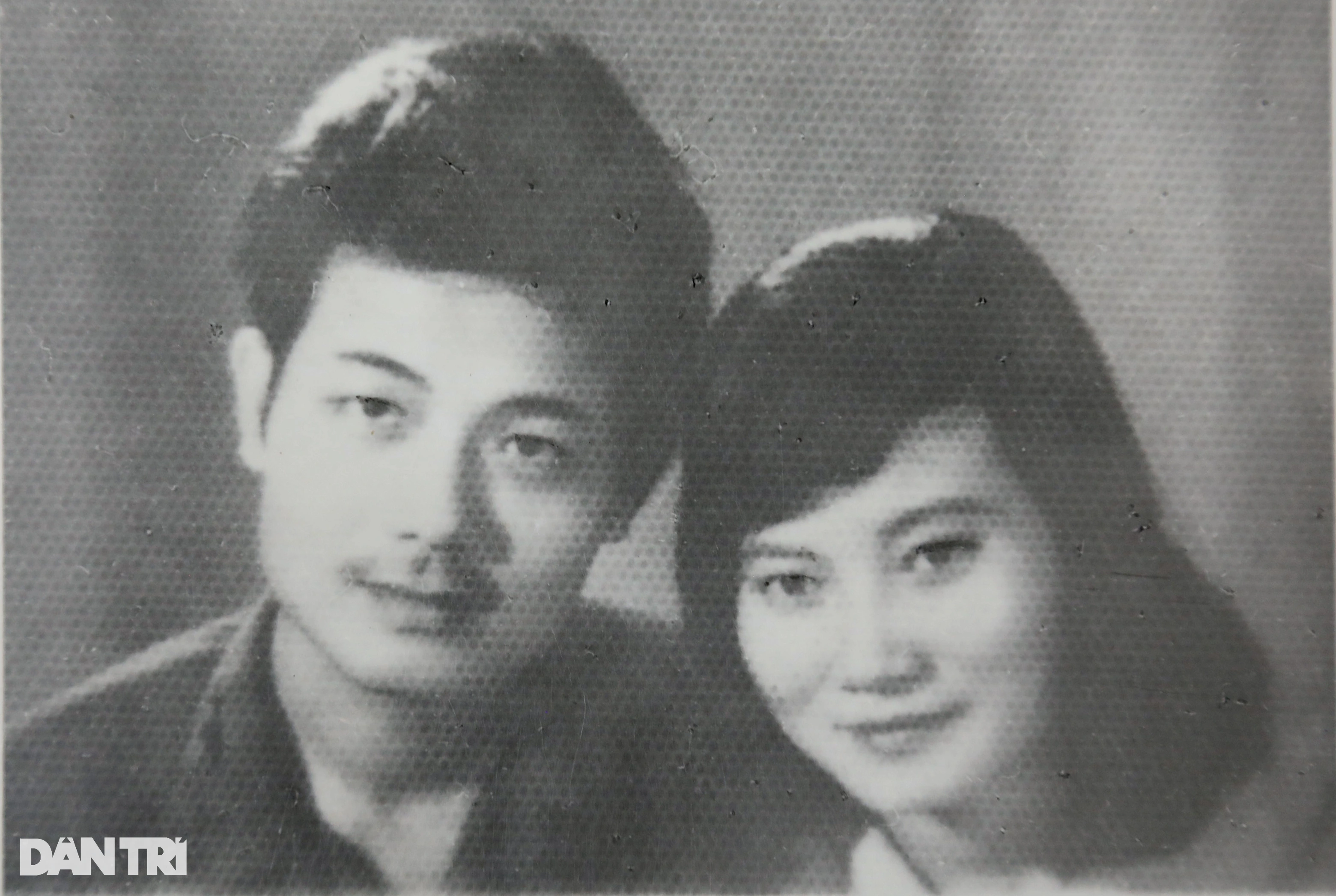
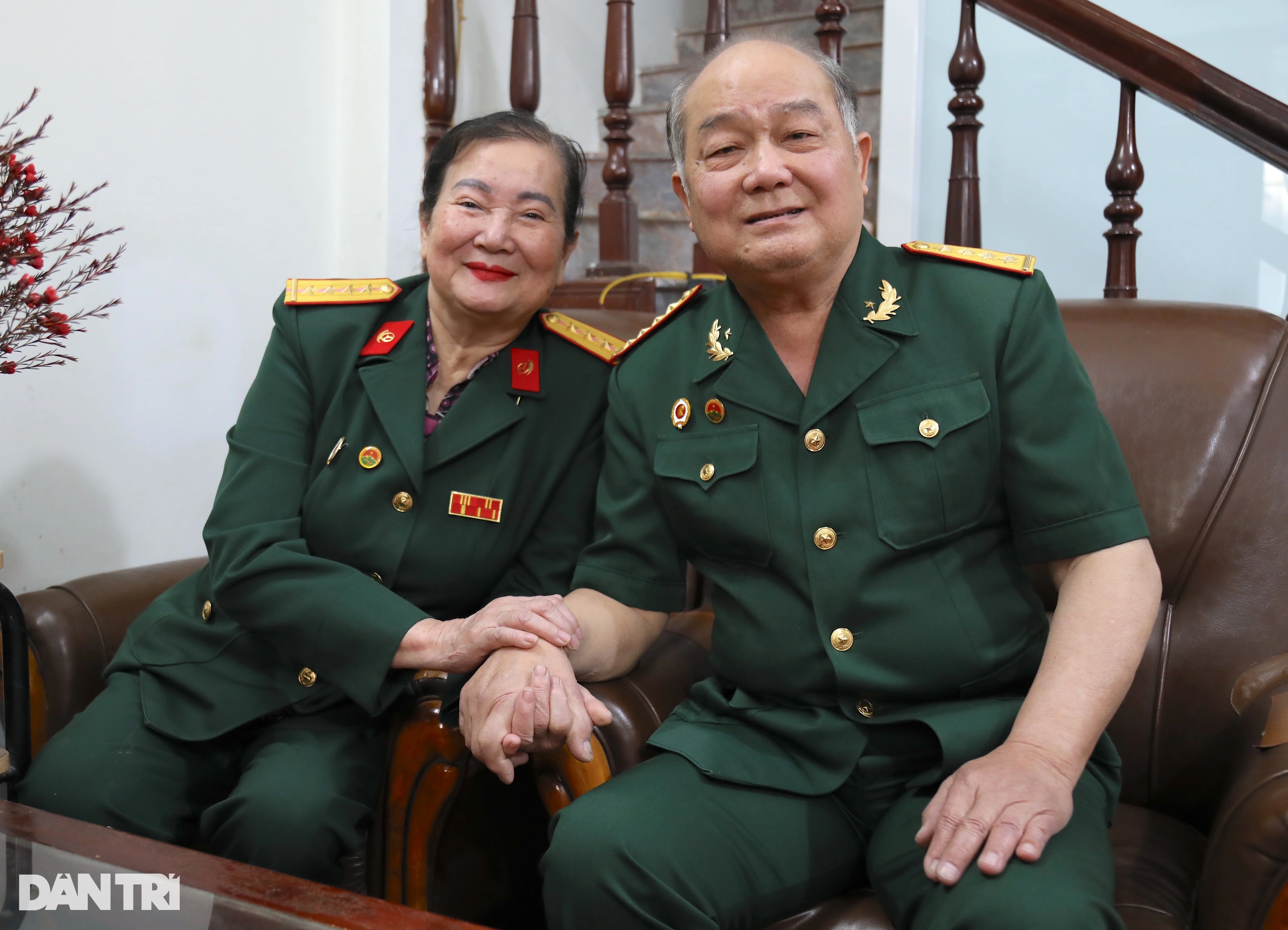
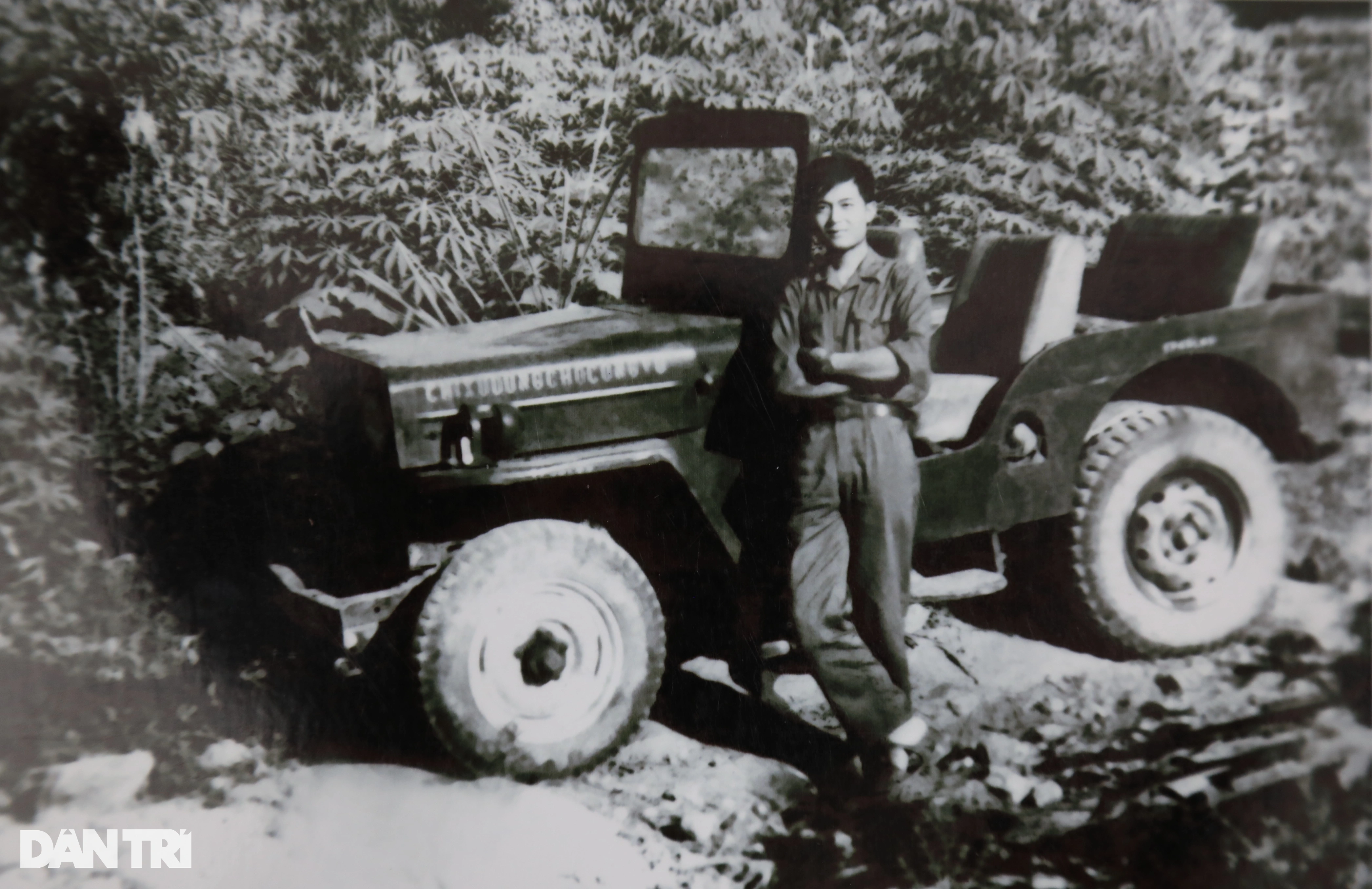
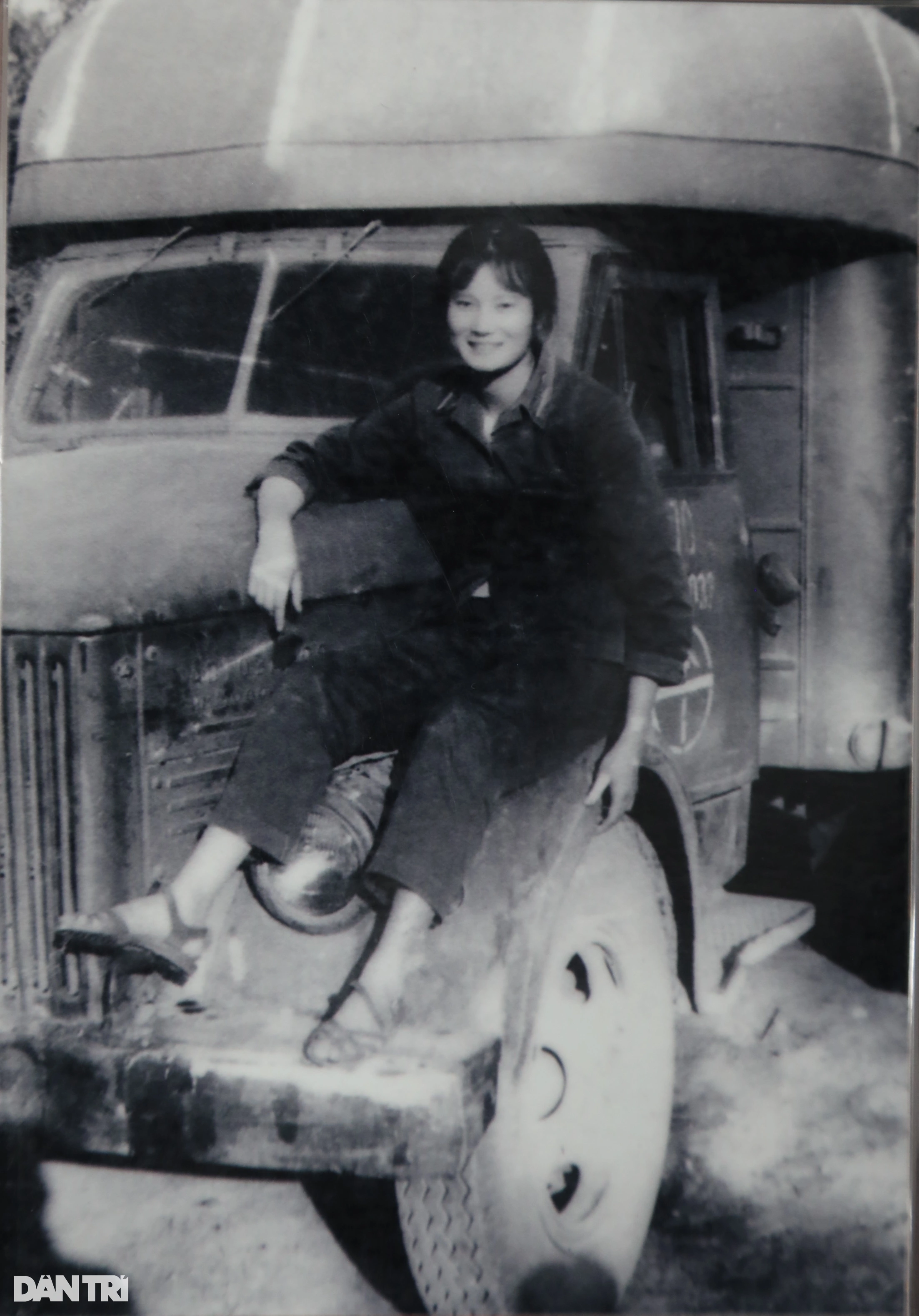
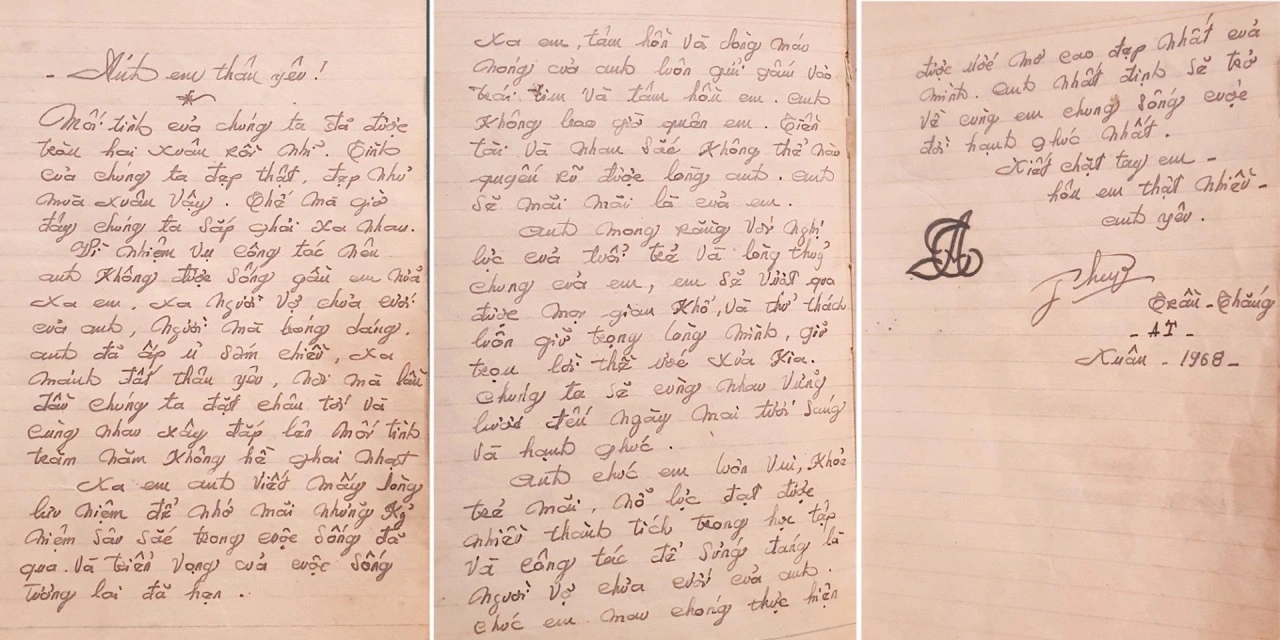
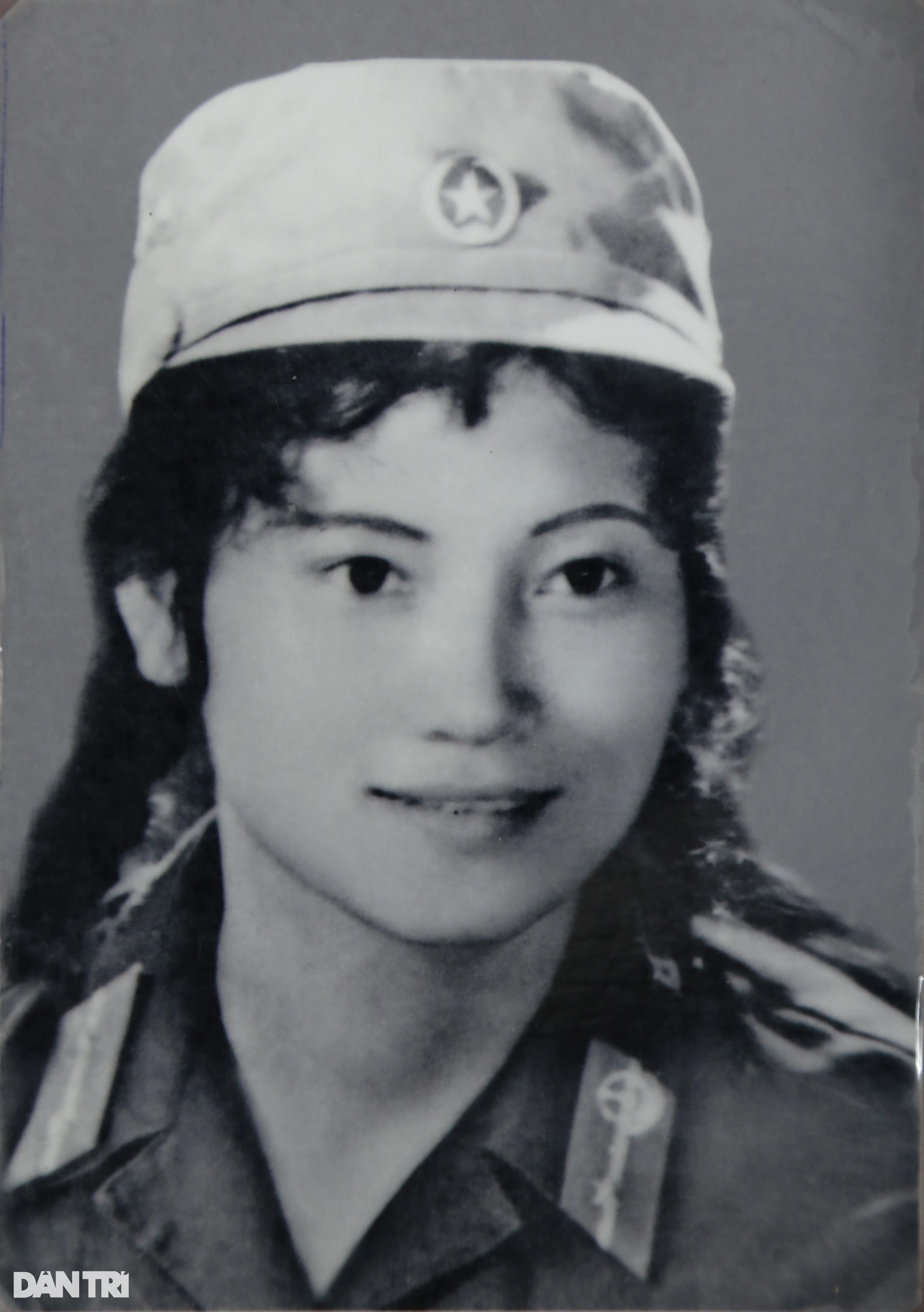
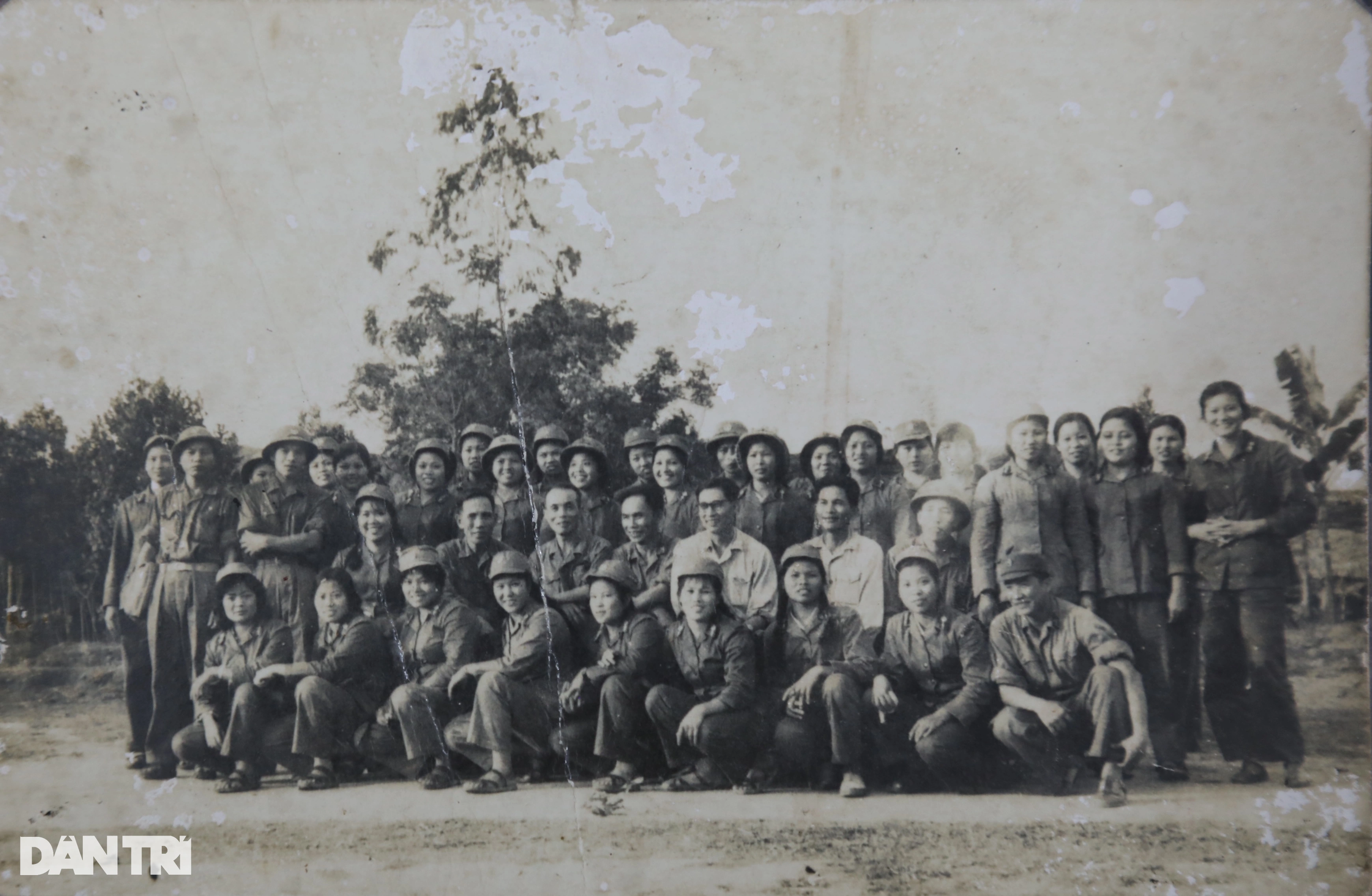
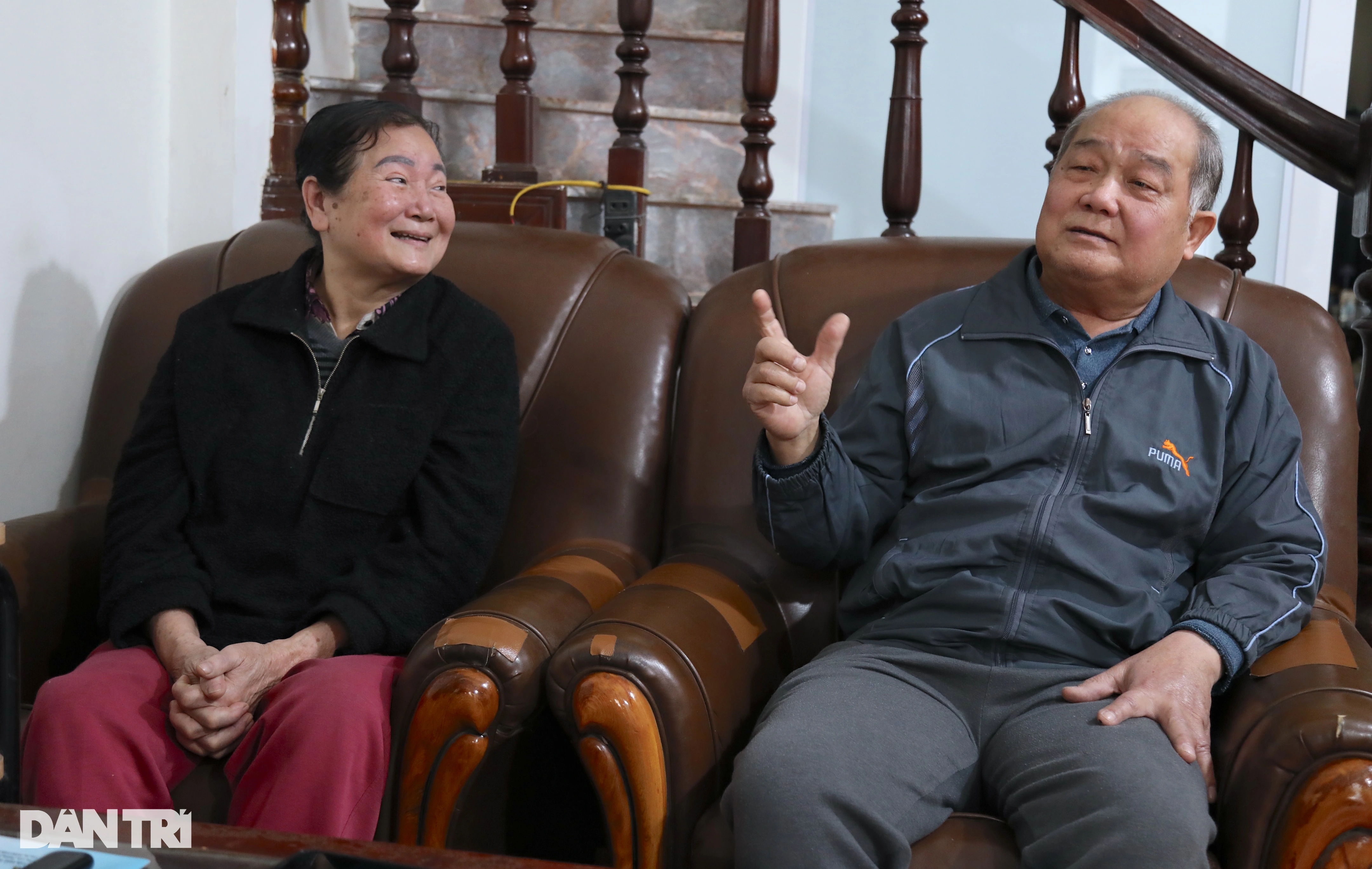
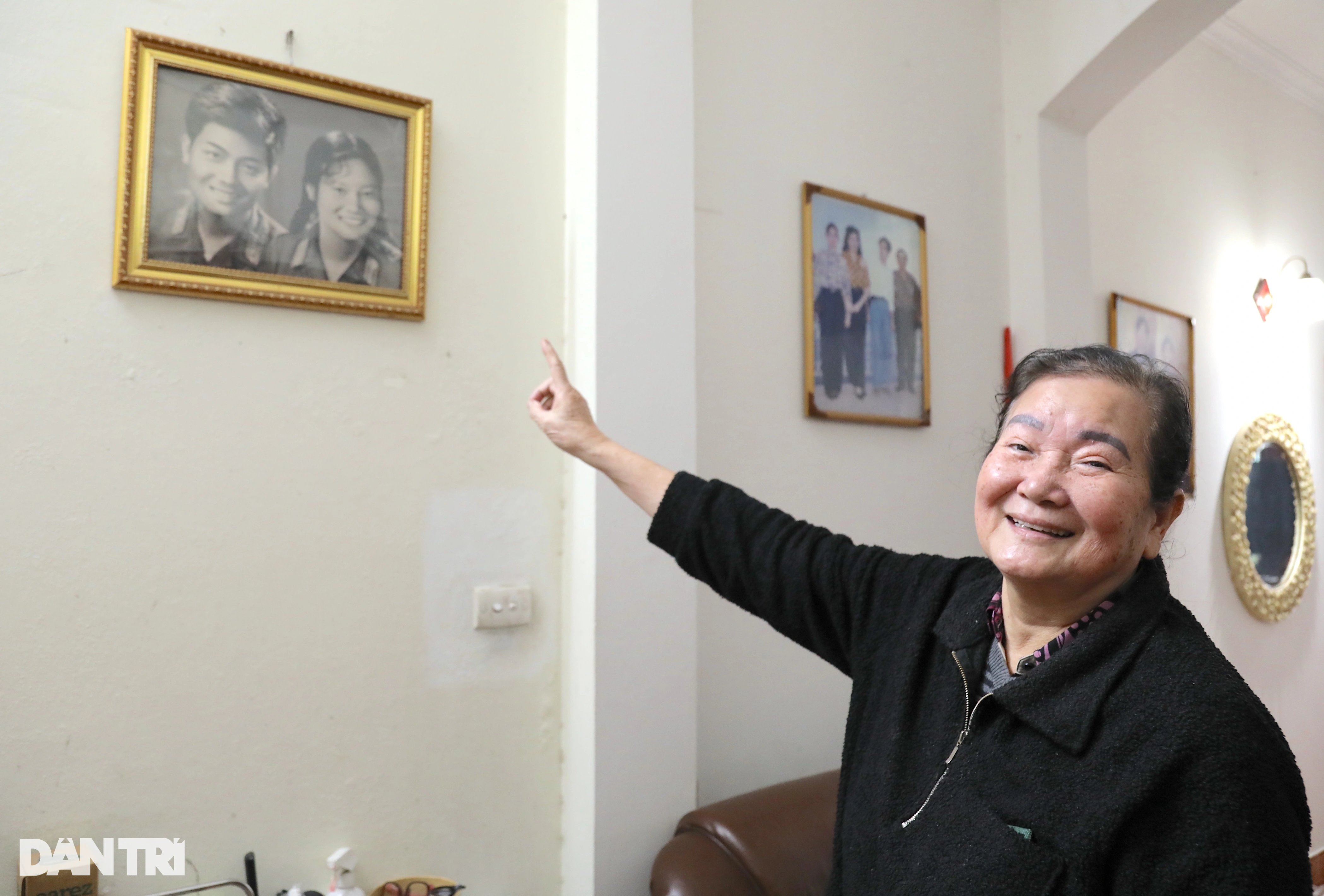
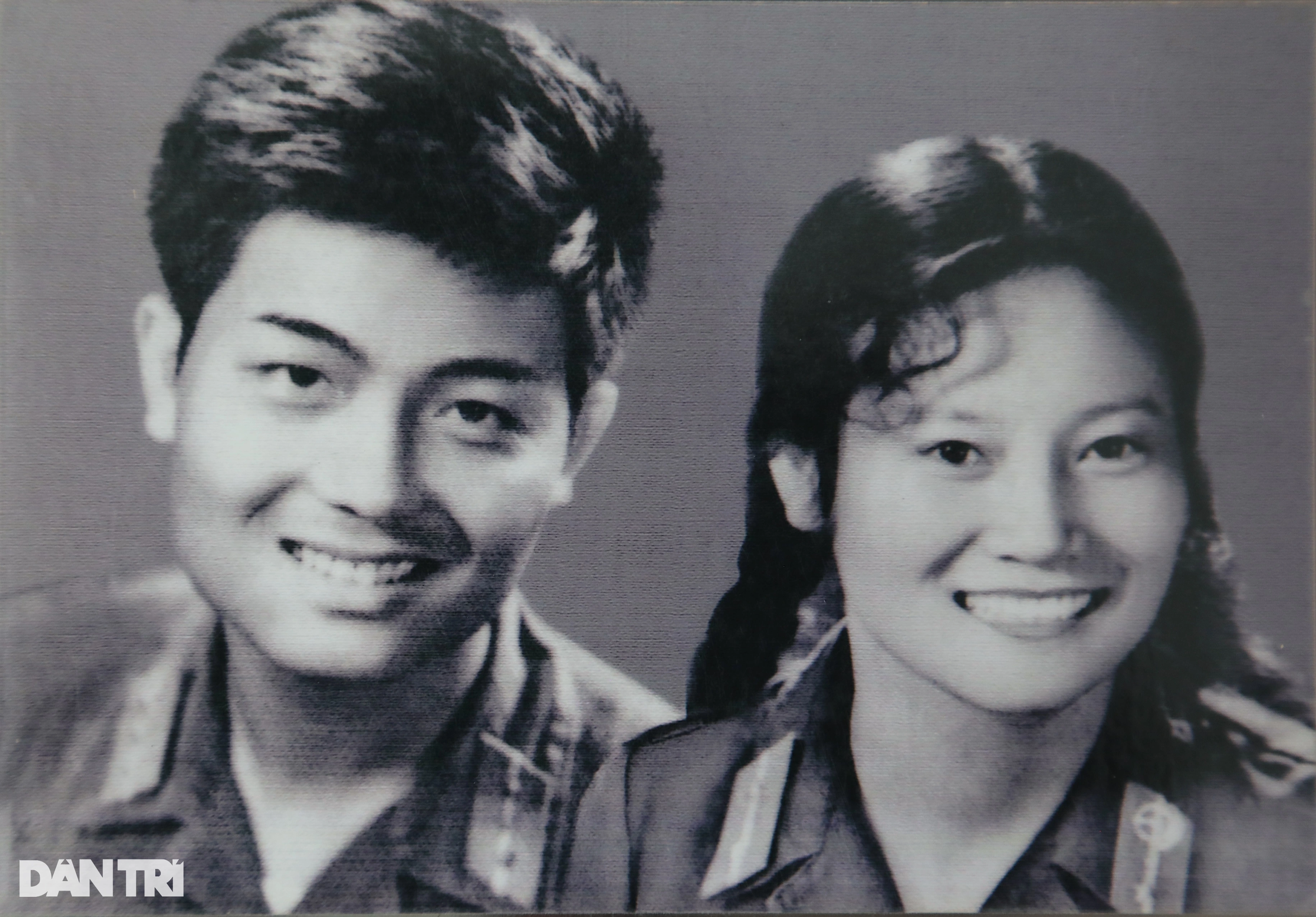
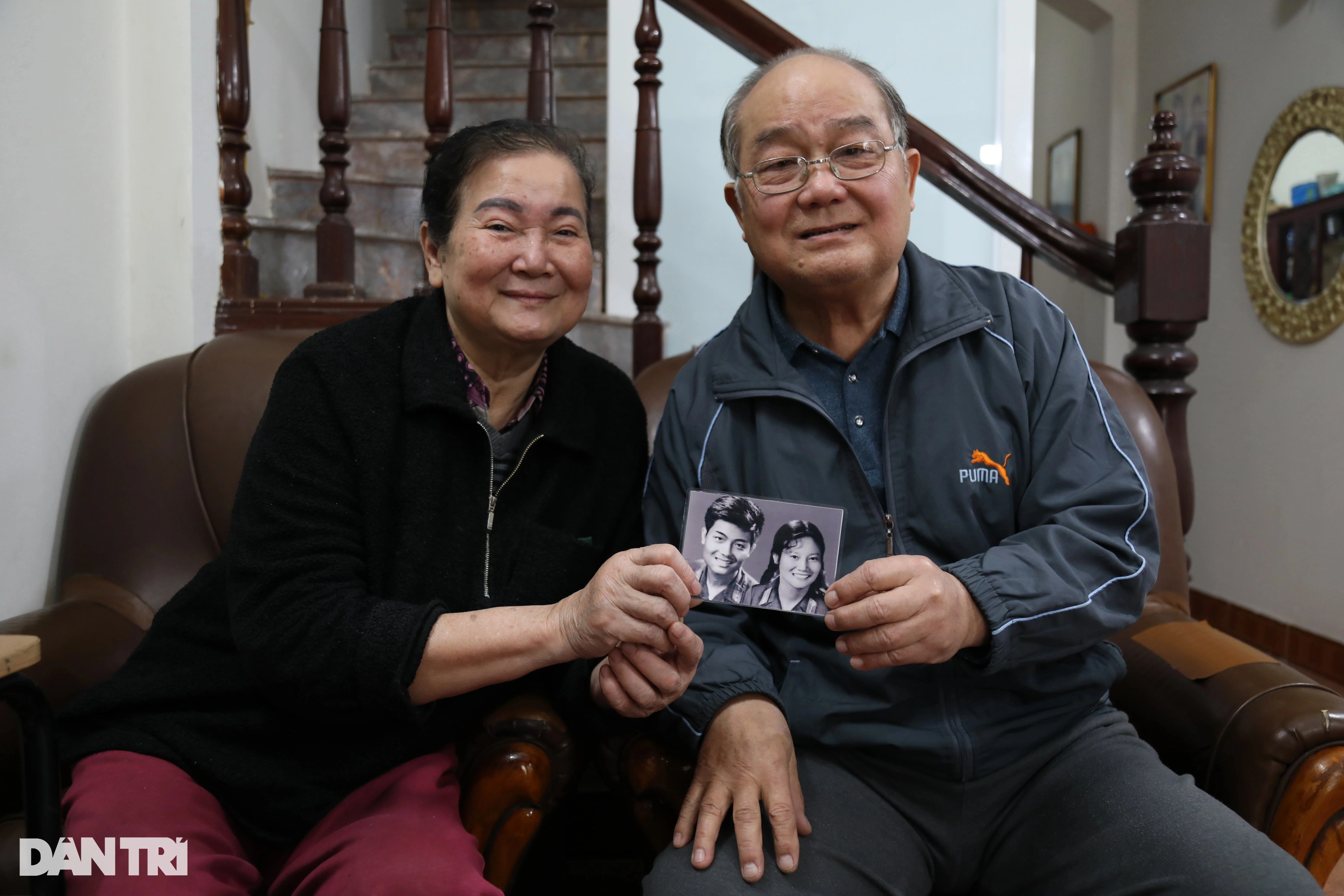

![[Photo] General Secretary To Lam receives King Philippe of Belgium](https://vstatic.vietnam.vn/vietnam/resource/IMAGE/2025/4/1/e5963137a0c9428dabb93bdb34b86d7c)
![[Photo] President Luong Cuong and King Philippe of Belgium visit Thang Long Imperial Citadel](https://vstatic.vietnam.vn/vietnam/resource/IMAGE/2025/4/1/cb080a6652f84a1291edc3d2ee50f631)
![[Photo] Prime Minister Pham Minh Chinh meets with King Philippe of Belgium](https://vstatic.vietnam.vn/vietnam/resource/IMAGE/2025/4/1/be2f9ad3b17843b9b8f8dee6f2d227e7)
![[Photo] Close-up of Vietnam's sniffer dog team searching for earthquake victims in Myanmar](https://vstatic.vietnam.vn/vietnam/resource/IMAGE/2025/4/1/d4949a0510ba40af93a15359b5450df2)



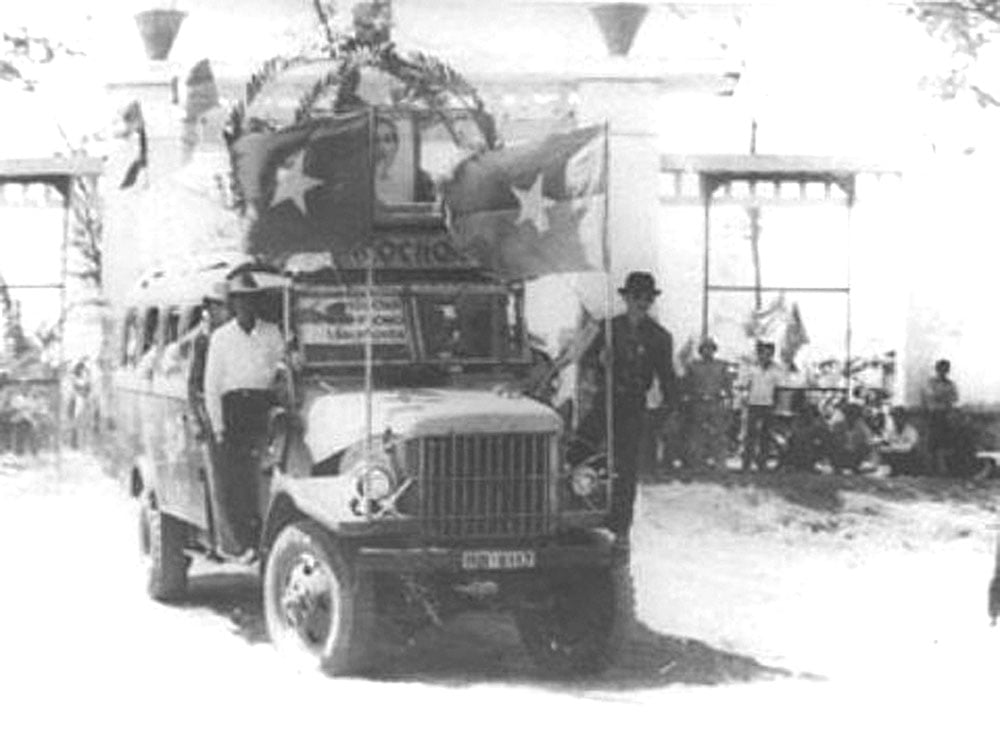
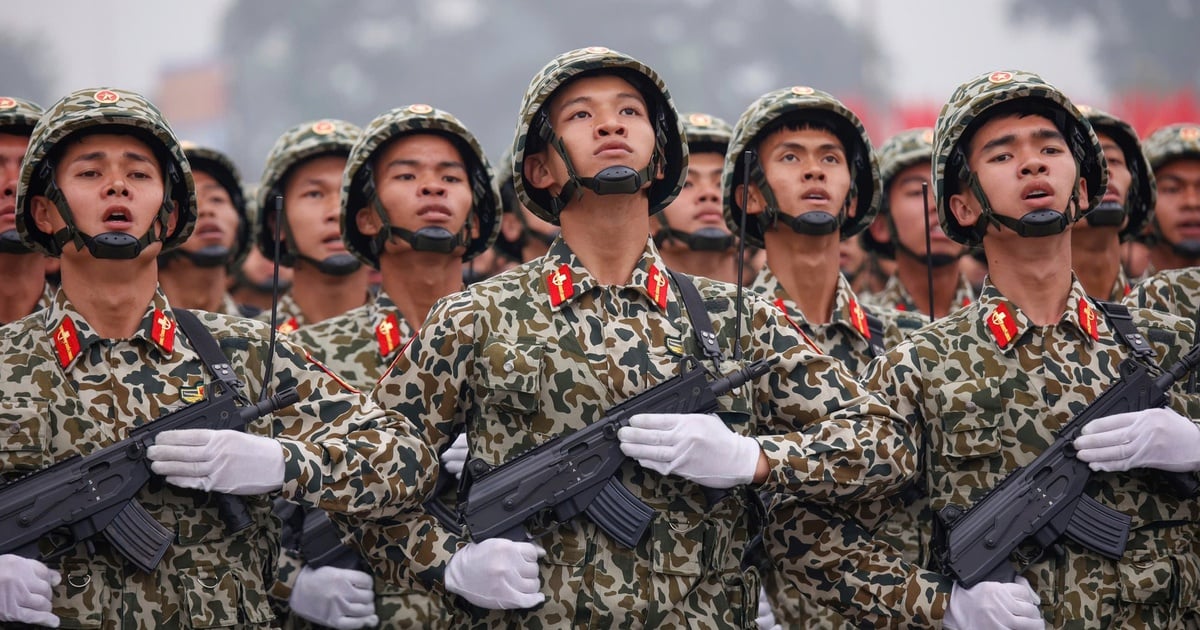

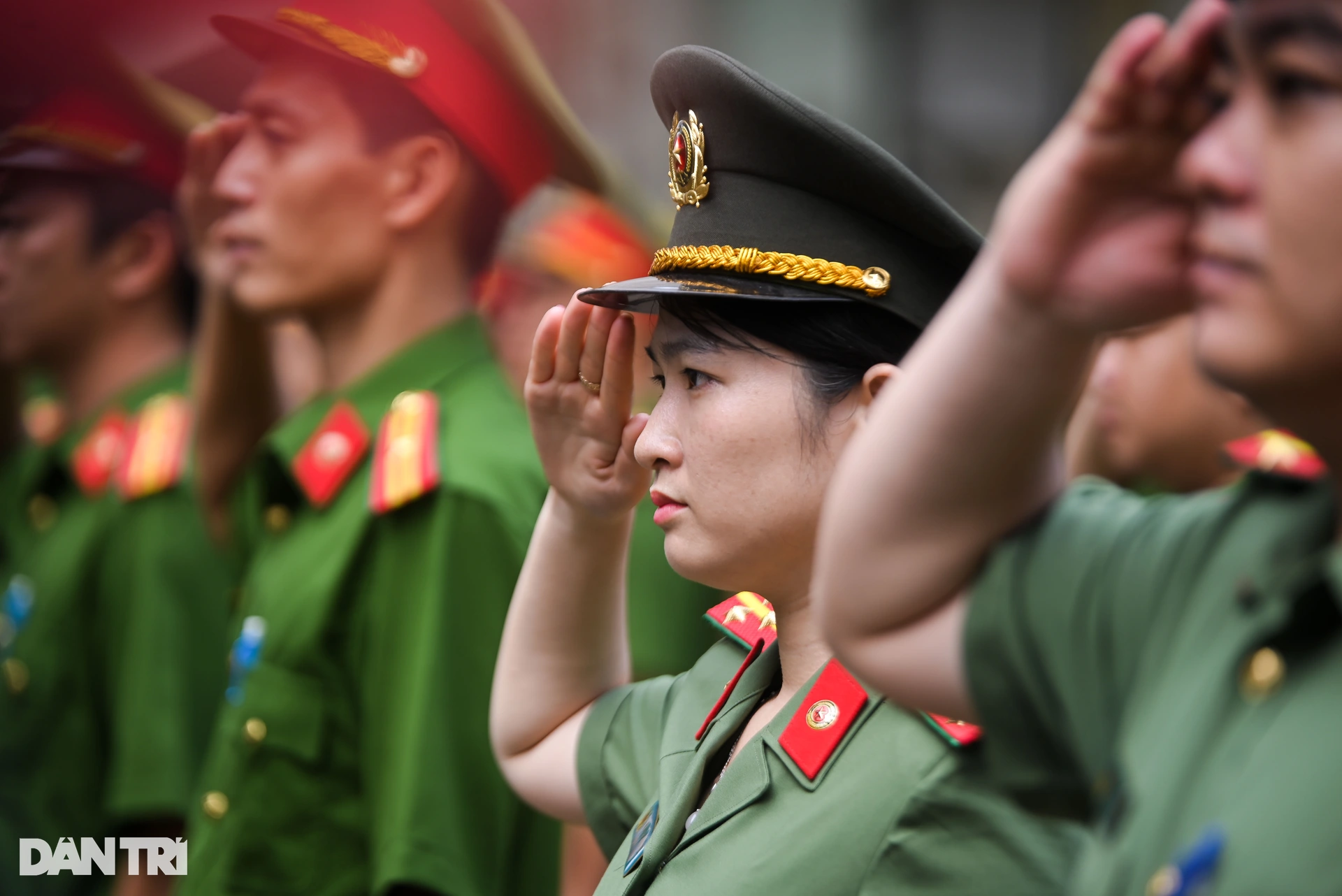
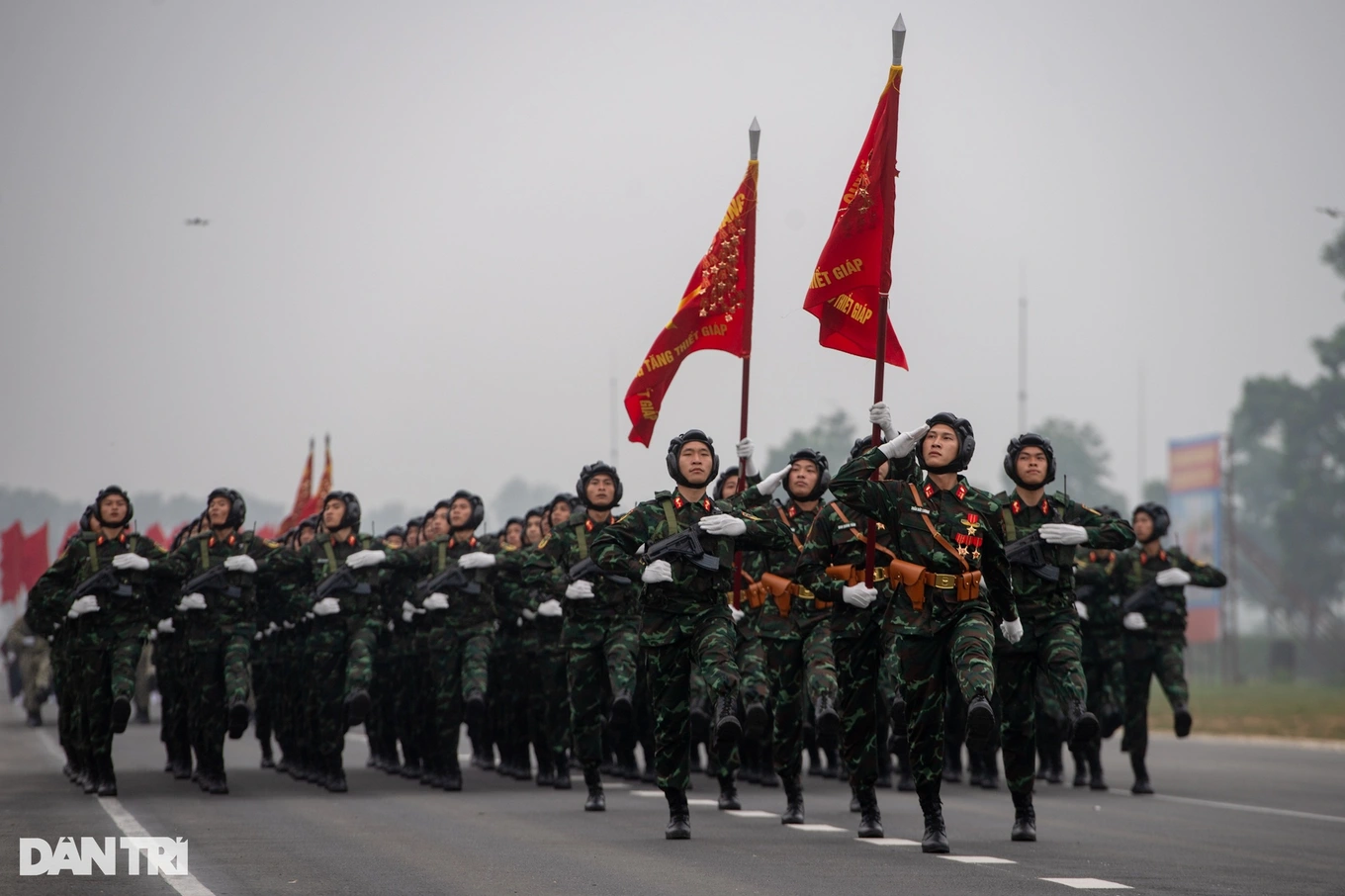
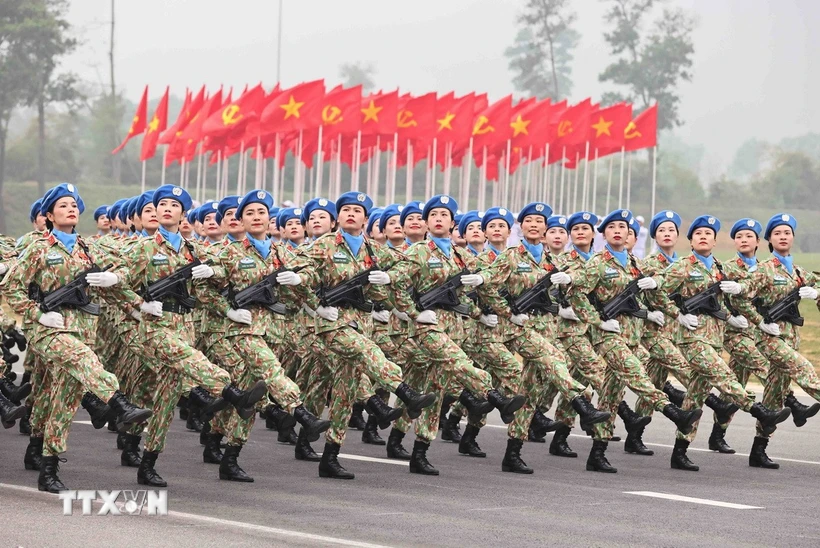






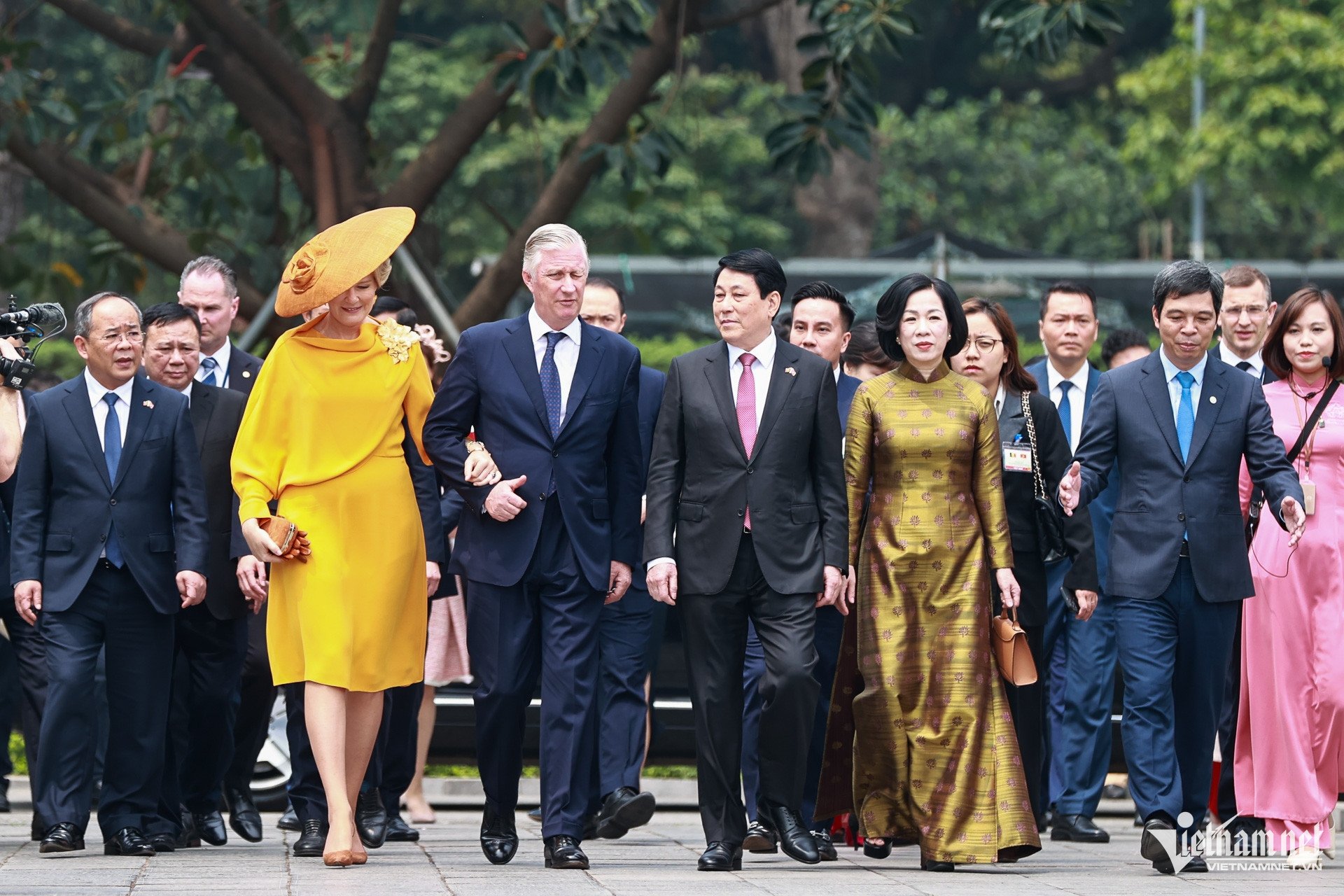










![[Photo] Myanmar's capital in disarray after the great earthquake](https://vstatic.vietnam.vn/vietnam/resource/IMAGE/2025/4/1/7719e43b61ba40f3ac17f5c3c1f03720)


































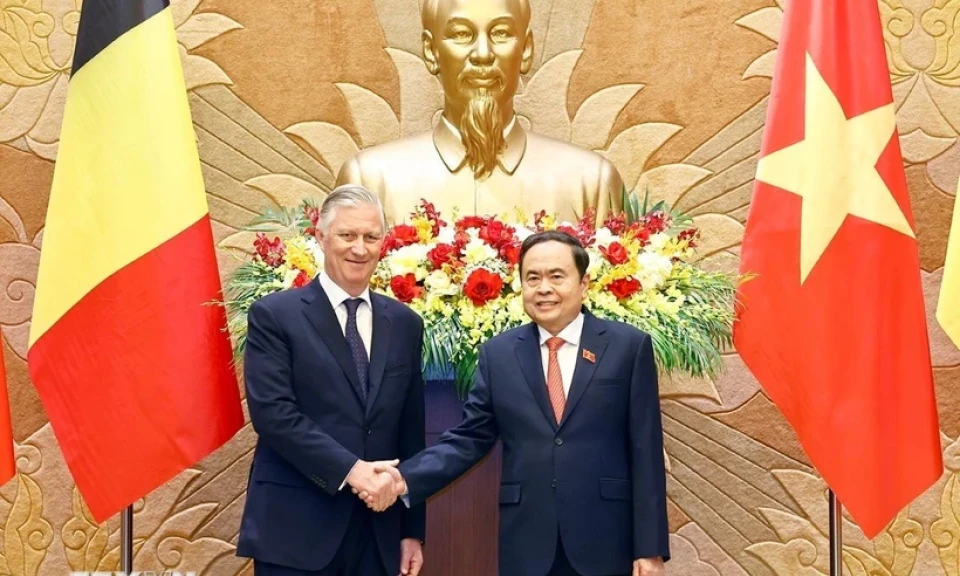

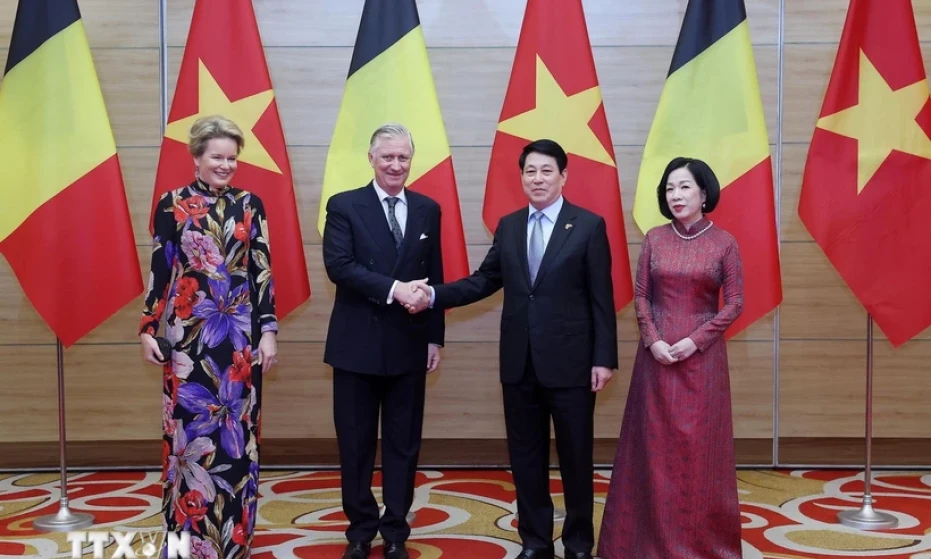



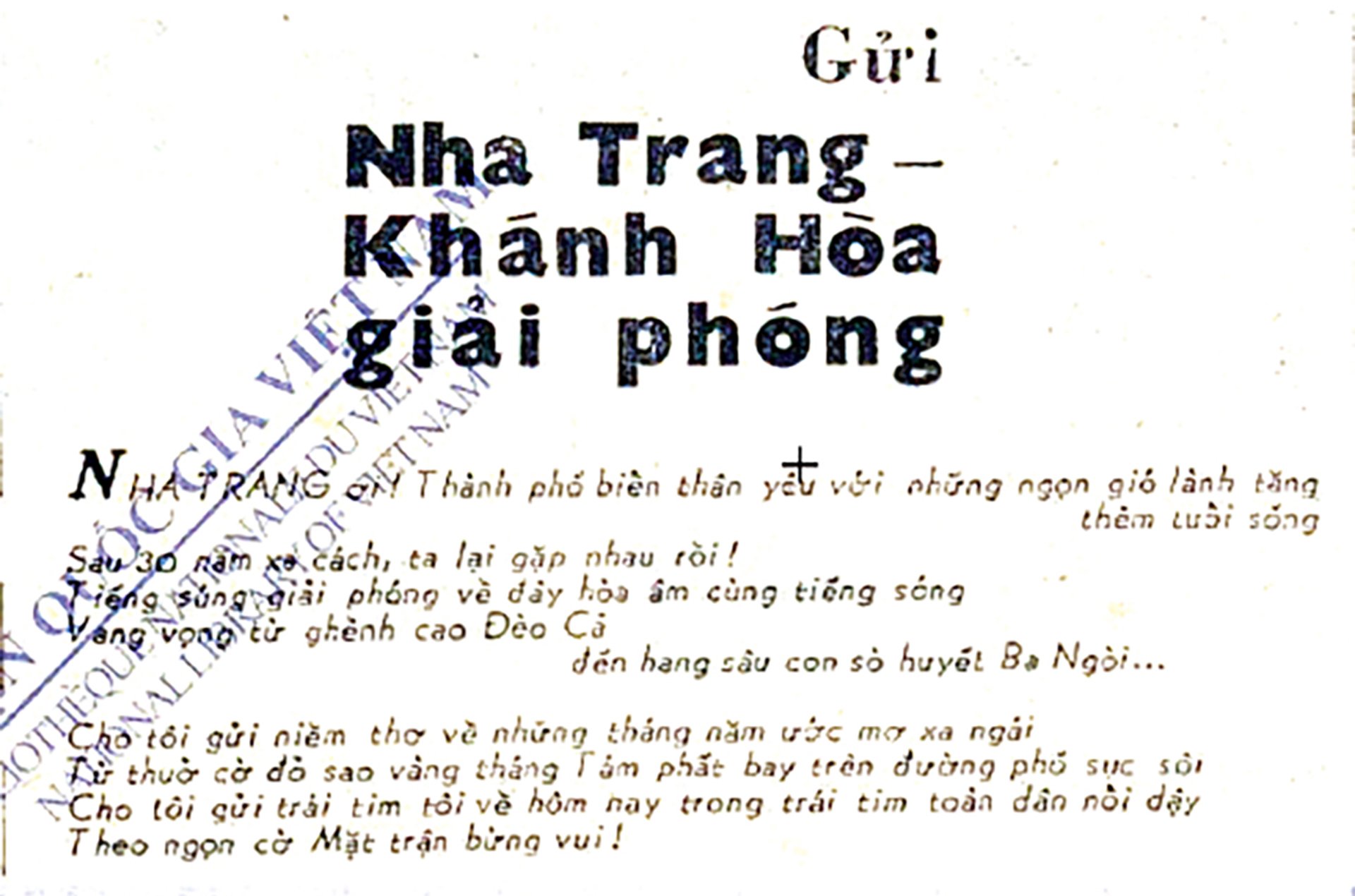













Comment (0)